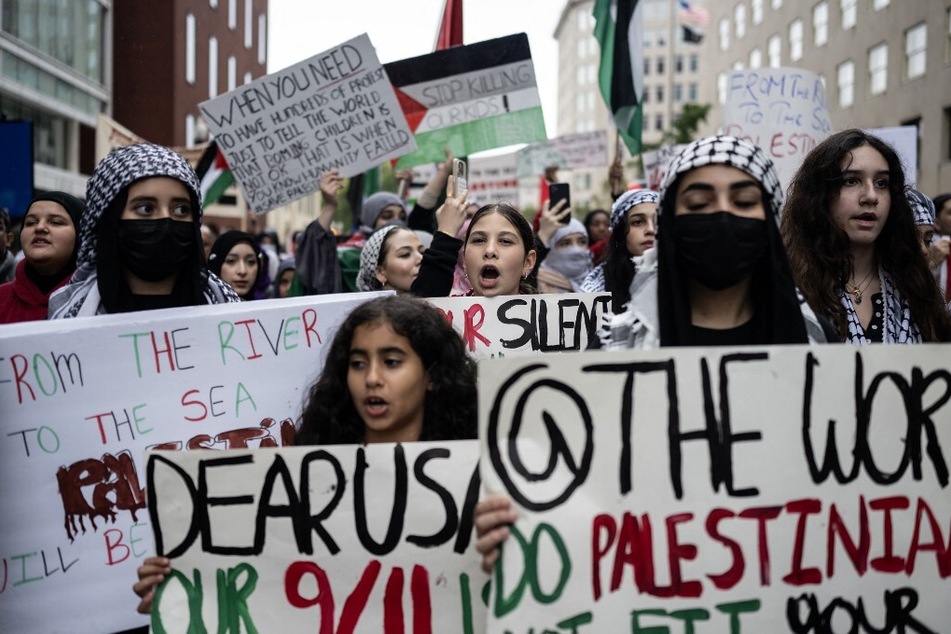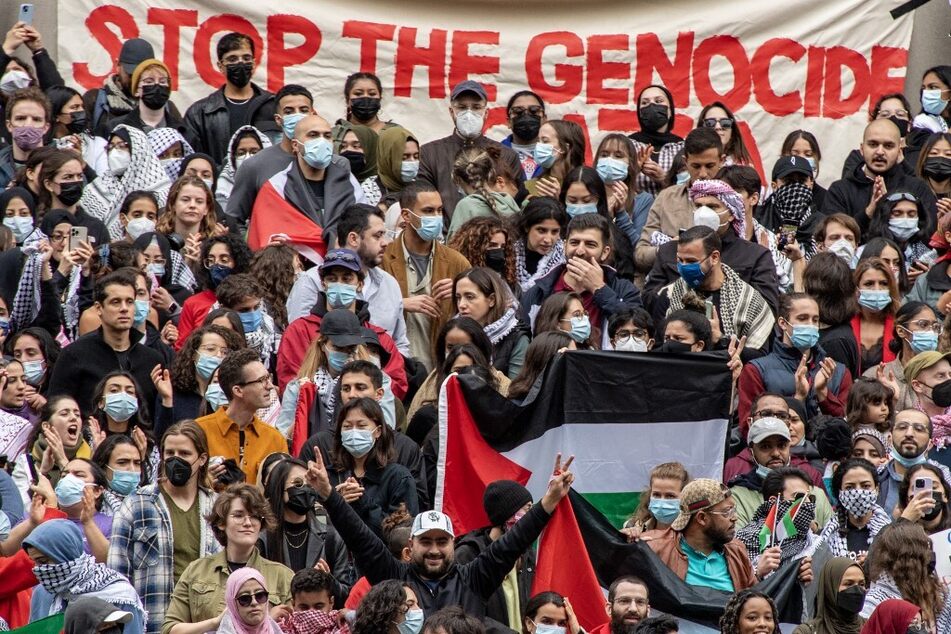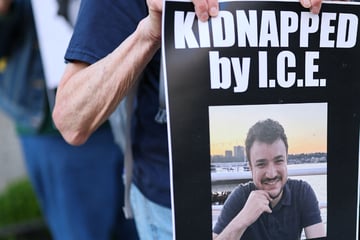Palestinian rights advocates caution US lawmakers against complicity in genocide, demand protections for student protesters
Washington DC - Palestinian rights advocates are calling on US lawmakers to end support for genocide and on college and university leaders to protect civil liberties as Israel's assault on Gaza enters its fifth week.

As Israel continues its carpet bombing campaign on Gaza, the National Lawyers Guild, Palestine Legal, and the Center for Constitutional Rights sent a letter on Friday to all US congressional representatives warning them of potential legal liability for aiding, abetting, inciting, or conspiring to commit genocide, especially if they approve emergency military funding for Israel.
"The aid package will provide funds to Israel to, inter alia, support its ongoing genocide of, and war crimes against, Palestinians who are confined to the Gaza Strip, and to support apartheid and ethnic cleansing, and the underlying crimes of forcible transfer and deportation, in the West Bank," the letter explains.
The organizations note that the US is a signatory to the Geneva Conventions of 1949 and the Convention on the Prevention and Punishment of the Crime of Genocide. The latter classifies complicity in genocide, or the intentional destruction of a people in whole or in part, as a crime under international law.
US aid to Israel amounts to over $150 billion in taxpayer dollars (not adjusting for inflation) to date. Most of that money has gone toward the Israeli military, which has a long track record of human rights violations in the Occupied Territories.
Further US military funding for Israel could make the dire situation even worse for Gazans desperately trying to survive under Israeli bombardment, and leave members of Congress vulnerable to legal repercussions.
"Please take notice that should you vote in favor of that package, you risk facing criminal and civil liability for aiding and abetting genocide, war crimes and crimes against humanity under international law, and may face investigation and prosecution at the International Criminal Court, and in third-states under the principle of universal jurisdiction," the letter cautions.
Palestinian rights advocates demand protections for student protesters

The same day the warning went out to Congress, 11 legal organizations sent another letter to leaders at more than 650 US colleges and universities urging them to protect students' right to speak in support of Palestinian liberation.
In particular, the document challenges a joint letter from the Anti-Defamation League and the Louis D. Brandeis Center for Human Rights Under Law that went out to colleges and universities on October 25 demanding that Students for Justice in Palestine (SJP) chapters be investigated for "material support for terrorism."
The communication targeting SJP is tied to broader efforts to crack down on a wave of pro-Palestinian protests sweeping campuses around the country. These complaints often seek to equate the Palestinian freedom struggle with anti-Semitism or terrorism.
"Across the U.S., student groups are the beating heart of essential dissent and demands for social justice that have punctuated U.S. history and hastened watershed advances in social justice for all of us. The critical role of all student political speech within our democratic system cannot be overstated, and neither can the dangerousness of the McCarthyist attack of it in the Joint Letter," wrote the American-Arab Anti-Discrimination Committee, the Center for Constitutional Rights, the Council on American-Islamic Relations, and more.
"To cast as anti-Semitic the criticisms that human-rights advocates globally have of Israeli state policy, which is infused with racist and genocidal rhetoric, lacks rigor and cheapens the serious dangers of bona fide anti-Semitism (meaning, animus against Jewish people because of their ethnic and/or religious identity) – an undeniably real and present danger that all of the undersigned take seriously and uniformly decry," the letter adds.
"We urge you to safeguard the civil and human rights of all of your students, protect your campuses' crucial role within our democracy, and reject the repression of political speech and the policing, surveillance, and criminalization of your students who are speaking out against all odds for freedom and justice."
Cover photo: Andrew CABALLERO-REYNOLDS / AFP

